What does abiotic mean in science
What Does Abiotic Mean In Science. Meaning of ABIOTIC in a sentence by wordsmith Published August 2 2016 Updated January 30 2019 Definition. How to use abiotic in a sentence. Earth and atmospheric sciences science building room. What does abiotic mean in science.
 Abiotic Component Wikipedia From en.wikipedia.org
Abiotic Component Wikipedia From en.wikipedia.org
Chemical and physical factors present. The definition of abiotic is an ecological term that is anything chemical or physical that lacks life. Not associated with or derived from living organisms. Soil for example can be made up of biotic elements like worms leaves and bacteria as well as abiotic elements like rocks plastic and clay. See full answer below. An example of something abiotic is light.
The abiotic factors of the environment include light temperature and atmospheric gases.
Abiotic depletion refers to the depletion of nonliving abiotic resources such as fossil fuels minerals clay and peat. Abiotic factors are non-living. The abiotic factors of the environment include light temperature and atmospheric gases. The term abiotic refers to all the non-living factors present in an ecosystem. Abiotic depletion refers to the depletion of nonliving abiotic resources such as fossil fuels minerals clay and peat. Abiotic factors refer to all the non-living ie.
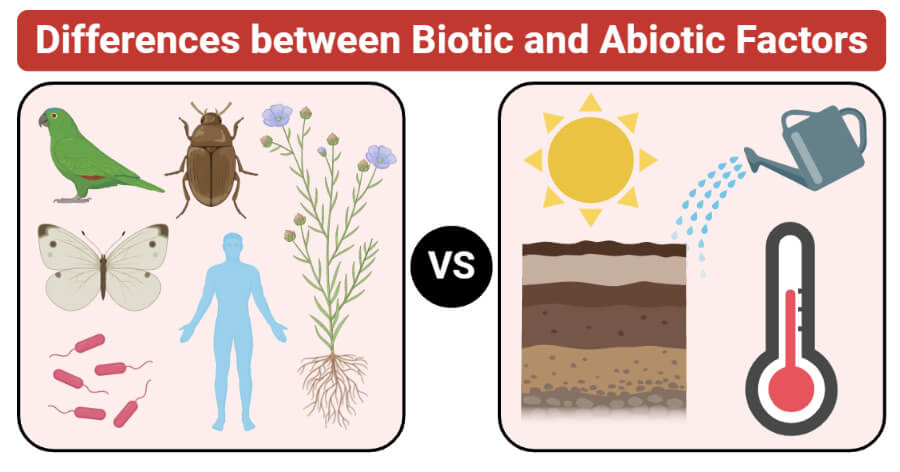 Source: microbenotes.com
Source: microbenotes.com
Soil for example can be made up of biotic elements like worms leaves and bacteria as well as abiotic elements like rocks plastic and clay. The definition of abiotic is an ecological term that is anything chemical or physical that lacks life. Abiotic means non-living or a physical and not biological factor. The term abiotic refers to all the non-living factors present in an ecosystem. An abiotic factor is a non-living part of an ecosystem that shapes its environment.
 Source: pinterest.com
Source: pinterest.com
Relating to things in the environment that are not living Definition of abiotic from the Cambridge Academic Content Dictionary Cambridge University Press. The abundance and distribution of living organisms in an ecosystem are affected by abiotic factors. In a terrestrial ecosystem examples might include temperature light and water. Abiotic depletion refers to the depletion of nonliving abiotic resources such as fossil fuels minerals clay and peat. That is something abiotic is physical rather than biological.
 Source: amoebasisters.com
Source: amoebasisters.com
Abiotic factors are non-living variables that can influence where organisms can live. Relating to things in the environment that are not living Definition of abiotic from the Cambridge Academic Content Dictionary Cambridge University Press. Abiotic means non-living or a physical and not biological factor. In a terrestrial ecosystem examples might include temperature light and water. Abiotic refers to non-living physical and chemical elements of the environmentwhich are not derived from living organismsThese abiotic factors play an imp role for survival of the living organismsThe 5 common abiotic factors of environment are Temperaturelightwaterwind and atmosphere which are non living.
 Source: kids.britannica.com
Source: kids.britannica.com
Soil for example can be made up of biotic elements like worms leaves and bacteria as well as abiotic elements like rocks plastic and clay. Abiotic definition is - not biotic. The word biotic is used to describe living or once-living organisms. What does abiotic mean in science. Abiotic factors are non-living variables that can influence where organisms can live.
 Source: expii.com
Source: expii.com
How to use abiotic in a sentence. An example of something abiotic is light. Abiotic means non-living or a physical and not biological factor. Abiotic synonyms abiotic pronunciation abiotic translation English dictionary definition of abiotic. The abiotic factors of the environment include light temperature and atmospheric gases.
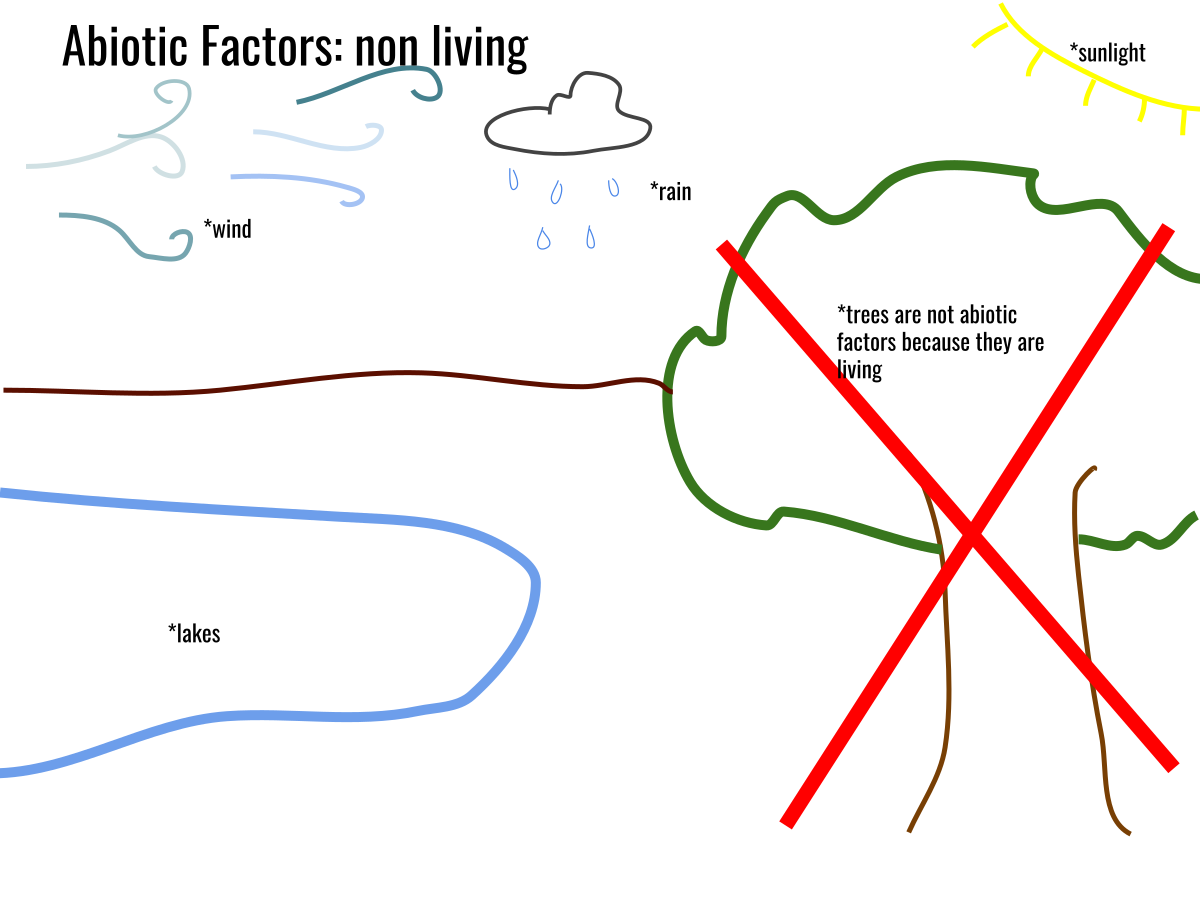 Source: en.wikipedia.org
Source: en.wikipedia.org
In a terrestrial ecosystem examples might include temperature light and water. That is something abiotic is physical rather than biological. In respect to this what is abiotic in science. Global warming potential is an appraisal of greenhouse gas for example CO 2 methane nitrous oxide contribution to global warming. The abiotic factors of the environment include light temperature and atmospheric gases.
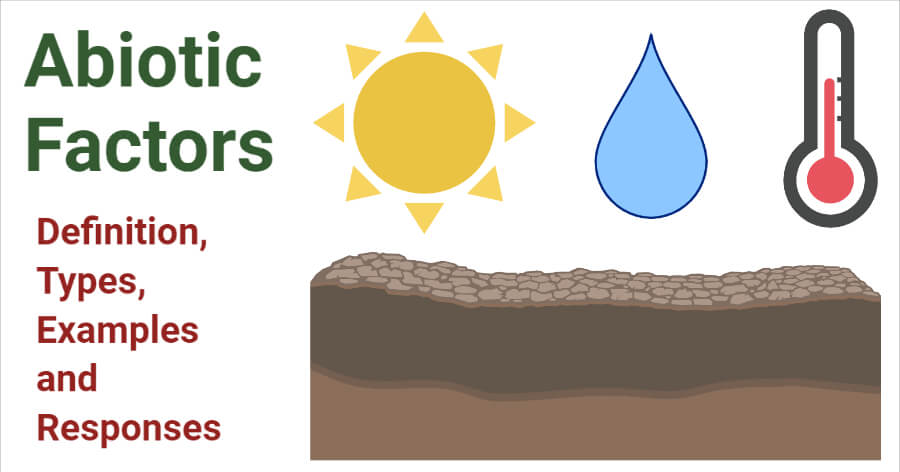 Source: microbenotes.com
Source: microbenotes.com
How to use abiotic in a sentence. Meaning of ABIOTIC in a sentence by wordsmith Published August 2 2016 Updated January 30 2019 Definition. Abiotic definition is - not biotic. Abiotic factors refer to all the non-living ie. Soil for example can be made up of biotic elements like worms leaves and bacteria as well as abiotic elements like rocks plastic and clay.
 Source: study.com
Source: study.com
Abiotic factor definition a nonliving condition or thing as climate or habitat that influences or affects an ecosystem and the organisms in it. The term abiotic refers to all the non-living factors present in an ecosystem. In biology and ecology abiotic components or abiotic factors are non-living chemical and physical parts of the environment that affect living organisms and the functioning of ecosystems. Meaning of ABIOTIC in a sentence by wordsmith Published August 2 2016 Updated January 30 2019 Definition. Abiotic depletion is measured in kilograms of Antimony Sb equivalents.
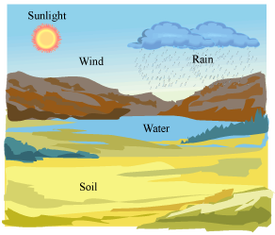 Source: socratic.org
Source: socratic.org
Abiotic definition of or characterized by the absence of life or living organisms. The word biotic is used to describe living or once-living organisms. Abiotic depletion refers to the depletion of nonliving abiotic resources such as fossil fuels minerals clay and peat. In respect to this what is abiotic in science. Abiotic factors are non-living variables that can influence where organisms can live.
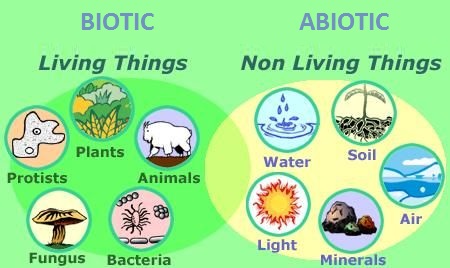 Source: dictionary.com
Source: dictionary.com
The term abiotic refers to all the non-living factors present in an ecosystem. Global warming potential is an appraisal of greenhouse gas for example CO 2 methane nitrous oxide contribution to global warming. Not associated with or derived from living organisms. The abiotic factors of the environment include light temperature and atmospheric gases. Abiotic refers to non-living physical and chemical elements of the environmentwhich are not derived from living organismsThese abiotic factors play an imp role for survival of the living organismsThe 5 common abiotic factors of environment are Temperaturelightwaterwind and atmosphere which are non living.
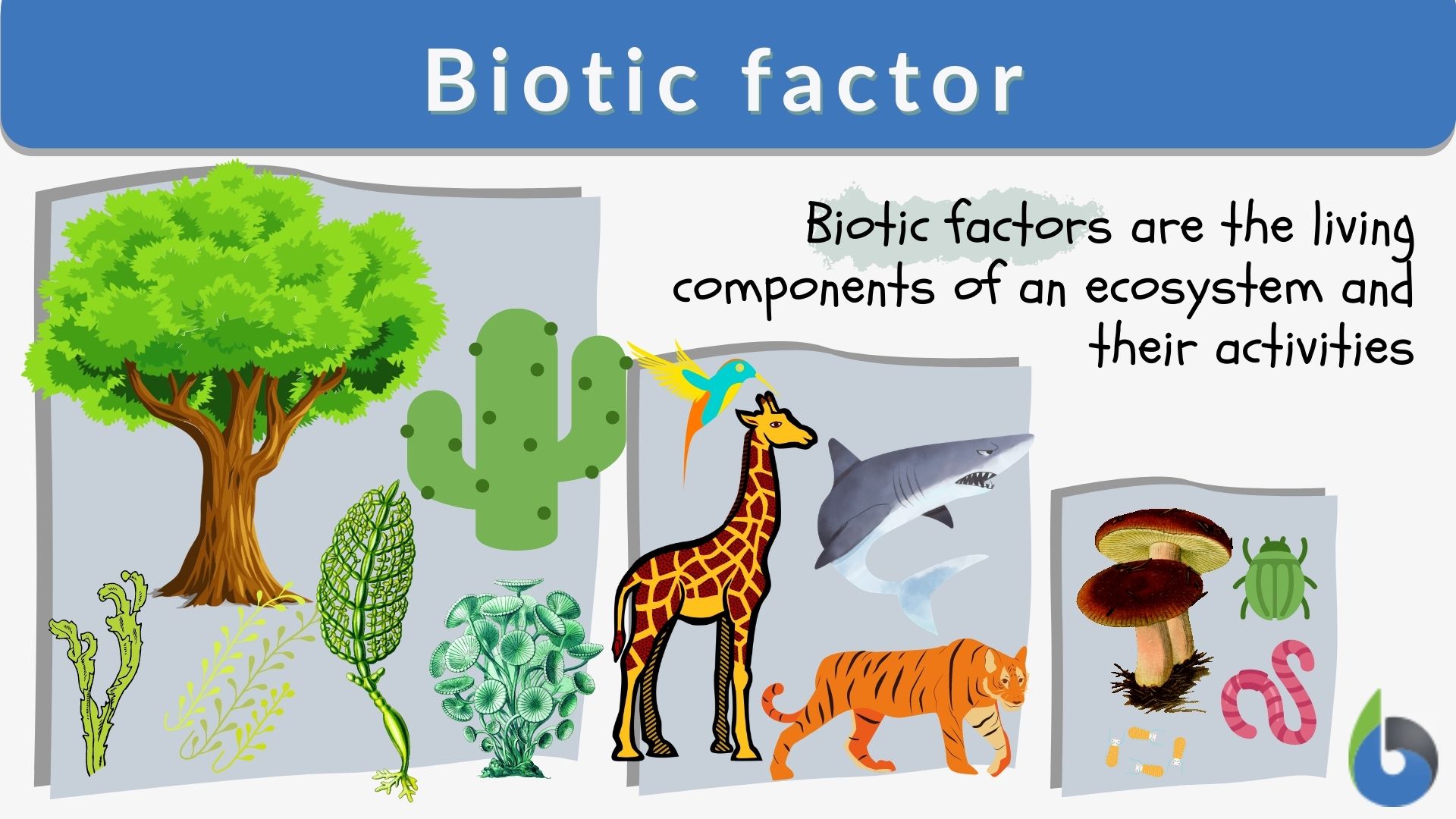 Source: biologyonline.com
Source: biologyonline.com
Abiotic factor definition a nonliving condition or thing as climate or habitat that influences or affects an ecosystem and the organisms in it. Abiotic factors refer to. Abiotic refers to non-living physical and chemical elements of the environmentwhich are not derived from living organismsThese abiotic factors play an imp role for survival of the living organismsThe 5 common abiotic factors of environment are Temperaturelightwaterwind and atmosphere which are non living. Not associated with or derived from living organisms. What does abiotic mean and example.
 Source: en.wikipedia.org
Source: en.wikipedia.org
Global warming potential is an appraisal of greenhouse gas for example CO 2 methane nitrous oxide contribution to global warming. Chemical and physical factors present. The values of the abiotic factors in an ecosystem affect the range of species that are found. Abiotic refers to non-living physical and chemical elements of the environmentwhich are not derived from living organismsThese abiotic factors play an imp role for survival of the living organismsThe 5 common abiotic factors of environment are Temperaturelightwaterwind and atmosphere which are non living. In respect to this what is abiotic in science.
 Source: youtube.com
Source: youtube.com
Relating to things in the environment that are not living Definition of abiotic from the Cambridge Academic Content Dictionary Cambridge University Press. The abundance and distribution of living organisms in an ecosystem are affected by abiotic factors. Chemical and physical factors present. Associated with nonliving things. What does abiotic mean in science.
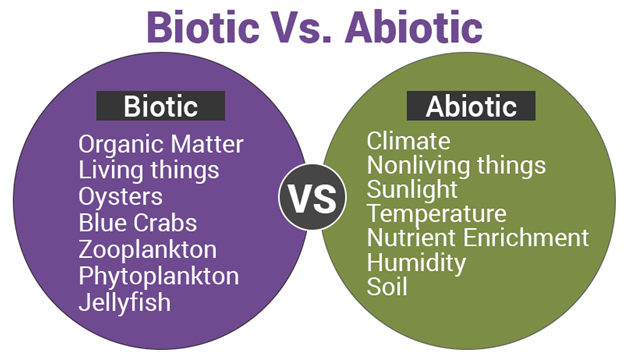 Source: byjus.com
Source: byjus.com
The values of the abiotic factors in an ecosystem affect the range of species that are found. The abundance and distribution of living organisms in an ecosystem are affected by abiotic factors. See full answer below. Abiotic depletion refers to the depletion of nonliving abiotic resources such as fossil fuels minerals clay and peat. The word biotic is used to describe living or once-living organisms.
 Source: slideplayer.com
Source: slideplayer.com
The abiotic factors of the environment include light temperature and atmospheric gases. In respect to this what is abiotic in science. The word abiotic is often used in science to describe environmental factors such as light temperature climate and moisture. An abiotic factor is a non-living part of an ecosystem that shapes its environment. The term abiotic refers to all the non-living factors present in an ecosystem.
If you find this site helpful, please support us by sharing this posts to your preference social media accounts like Facebook, Instagram and so on or you can also save this blog page with the title what does abiotic mean in science by using Ctrl + D for devices a laptop with a Windows operating system or Command + D for laptops with an Apple operating system. If you use a smartphone, you can also use the drawer menu of the browser you are using. Whether it’s a Windows, Mac, iOS or Android operating system, you will still be able to bookmark this website.





